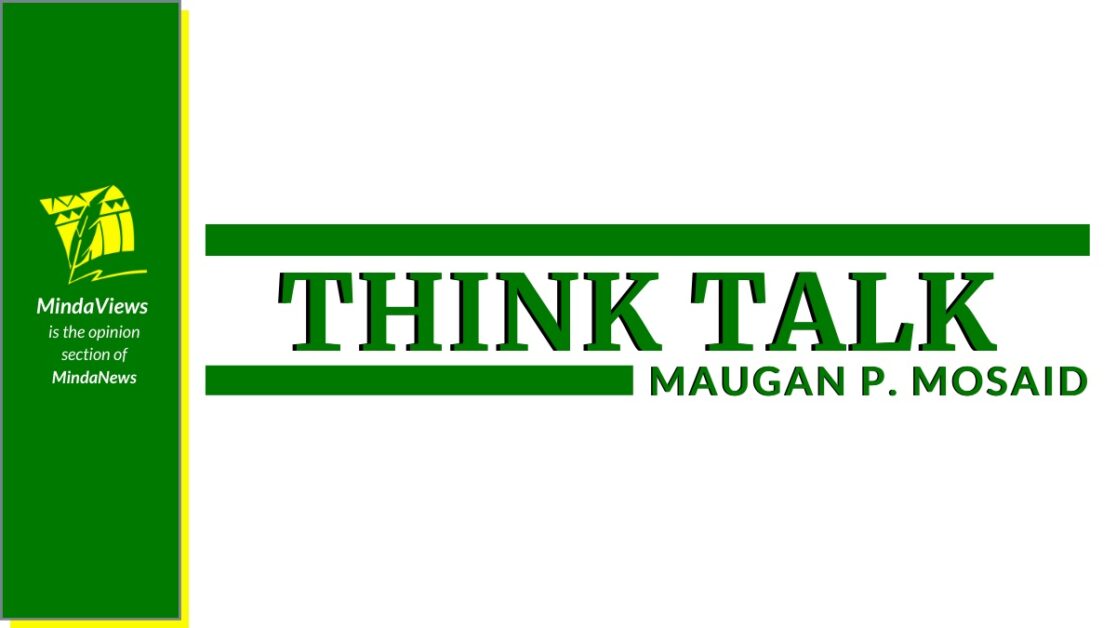
MATALAM, North Cotabato (MindaNews / 27 February) — Election time is promise time. This is the period when we hear politicians woo the electorate with lofty promises here and there.
But rather than simply get lured by politician’s promises, we should take time to ponder and wonder about the promises they make. Sadly, though, most voters get swayed by powerful political personalities especially considering the fact that we are still wallowing under the so-called “patronage political environment” rather than issue-oriented politicking.
Let us look at some sweet pledges heaved by politicians, which in most cases, are already overpromised. These promises, wittingly or unwittingly, become part of the political narratives without the benefit of doability or attainability being warranted into it.
Some of these promises are:
- Trabaho para sa lahat ng Pilipino (jobs for everyone).
- Pabahay para sa lahat ng mahirap (housing for the poor).
- Palakasin ang agrikultura (strengthen the agriculture sector).
- Tax incentives for foreign investors.
- Lower taxes for prime commodities.
- Increase minimum wage to P50,000.
- Free maintenance medicine for all senior citizens.
- No more debts.
- Walang magugutom na pamilya (no families would go hungry)
- Subsidize a big chunk of the petroleum industry.
Hearing all these promises is sickening without a bit of “how to attain them.” The keen observer would readily dismiss them as “motherhood statements.”
On the Promise of Jobs and Housing for Everyone
This is easier said than done. The politicians offering such promises think that we are a “welfare state.” We have to be super rich to be able to do that to a fast-growing population. Has anyone of them considered political economics before making such promises?
There is no way this can be done without resorting to borrowing money. But before they contemplate of any loan, politicians should first examine our debt-to-GDP ratio which has now exceeded the 70% mark. Some economists would say that 70% ratio is already the breaking point.
On the Promise of Reducing Taxes
We understand the noble intention of lowering taxes to lure more investors. But tax is the backbone of our national budget just as agriculture is the backbone of our economy. Rather than contemplate on lowering taxes our political leaders should better assure predictability of the business climate. Businessmen would not worry much about the level of taxes if business profitability is secure and sustainable in the long term. It is straightforward logic that we need to gain more revenue to offset public spending.
One candidate had proposed about taxing the wealthy citizens of this country. He is targeting the 500 richest Filipinos which, according to this candidate, is one surefire strategy to narrow the gap between the rich and the poor. He calls this the “wealth tax.” Mind you, I like the idea. But rather than call it “wealth tax” which is somewhat intimidating, he better call it “solidarity tax.” Solidarity, because it is mutually beneficial. This is not taking some from the rich to give to the poor. On the other hand, business thrives well when supported by strong consumers.
I think the political “handlers” should reinvent their protégé to show some semblance of credibility on the fiscal front.
On the Promise of Providing Everything Free for Some Sectors
This mindset assumes that we are a rich country. There is no way we can move towards being a welfare state. Instead of wielding promises of this sort, a clear economic agenda is much better. To accumulate more wealth for the nation the formula is rather simple. THERE SHOULD BE MORE MONEY COMING IN THAN MONEY GOING OUT OF THE COUNTRY. Economists call this as “balance of trade.” When export earnings surpass import expenditures, we are surely a growing economy. When our debt-to-GDP ratio is going down, we are moving towards being a tiger economy.
Again, all of these is easier said than done. Nevertheless, a clear macroeconomics will challenge our politicians to work on the specifics.
(MindaViews is the opinion section of MindaNews. Maugan P. Mosaid holds a doctorate degree in rural development. He is a freelance writer, planning consultant and teaches Statistics and Methods of Research in the graduate school)







